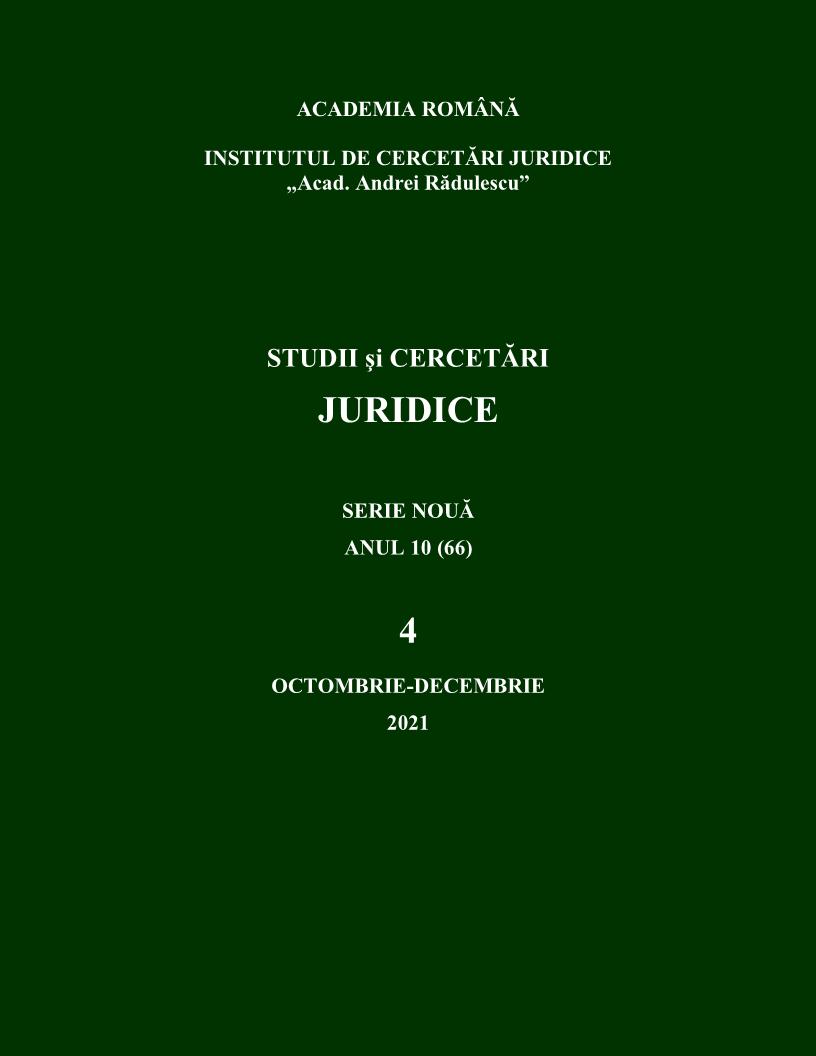Noul cadru de acțiune juridico-instituțională europeană privind schimbarea climatică. Fundamentele dreptului ue al climei instituite prin Regulamentul (UE) 2021/1119 (Legea europeană pentru climă)
The new legal-institutional framework of European Convention on Climate Change. The foundations of EU climate law established by Regulation (EU) 2021/1119 (European Climate Law)
Author(s): Mircea Dutu, Mircea M. Dutu-BuzuraSubject(s): Law, Constitution, Jurisprudence
Published by: Editura Academiei Române
Keywords: Paris Agreement; climate change; EU law; Green Deal; European climate regulation; Framework Convention for Climate Change; human rights; the right to environment;
Summary/Abstract: Assuming the objectives of the Paris Agreement (2015) and its role as a global leader in promoting the global response to the challenges of climate change, the EU has adopted in the past years a complex package of policies, strategies, and rulings regarding the creation of a new vision and the establishment of the appropriate juridical and institutional framework for the European action in the field. After the Resolution of the European Parliament of November 28th, 2019, which declared a “climate and environmental emergency”, the European Commission has launched, on the following December 11th, the European Green Deal, and for its enforcement over 50 key actions, all involving a new “legal package” including revisions of existing regulations and adopting new ones. In this context, the Regulation (EU) 2021/1119 of June 30th, 2021, establishes the framework for climate neutrality and for its development have been announced, on the following July 14th, the first 13 foreshadowed regulations. The Regulation (the European climate law) makes compulsory objectives such as reaching climate neutrality by 2050, intermediary objectives such as the reduction of GHG emissions by 2030 and 2040, the adaptation establishing constant revisions and the suitable mechanism, it institutes the involvement of the European Scientific Consulting Council, and revises Regulation (EU) 2018/1999 on the energy union, thus establishing the basis for a new climate legal pack. In the meantime, the entire legal order of the EU becomes more open towards the eco-climatic problematic, favors the creation of the EU climate law and, on the one hand, generates adequate developments in the internal legal systems of the member states, while on the other hand, by the power of example and the interaction of legal systems, it influences the world climate law. By its decisions (the Declaration on Forests, the Global Pact for Methane, and the technical and procedural regulations) the COP26 (Glasgow, Scotland) contributes to the progress of the enforcement of the Paris Agreement, it expresses the increased contribution of the EU to the global ecological and climate reaction, and positively influences the evolution of the legal framework in the field. Thus, the conceptual and regulatory founding of a legal edifice specific to climate are being born.
Journal: Studii și Cercetări Juridice – Serie Nouă
- Issue Year: 2021
- Issue No: 4
- Page Range: 11-53
- Page Count: 43
- Language: Romanian

